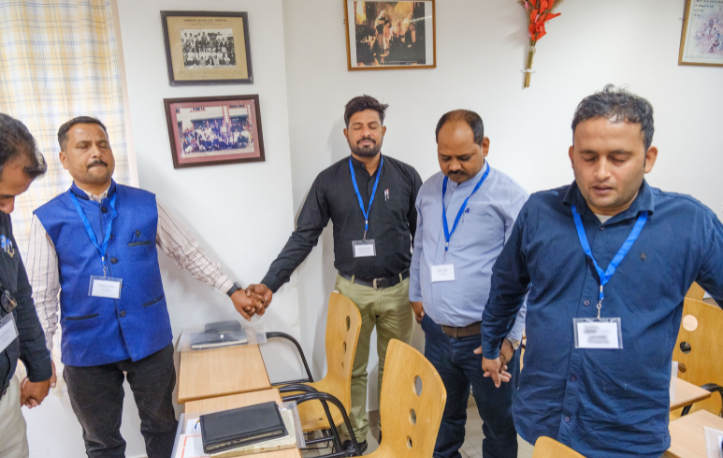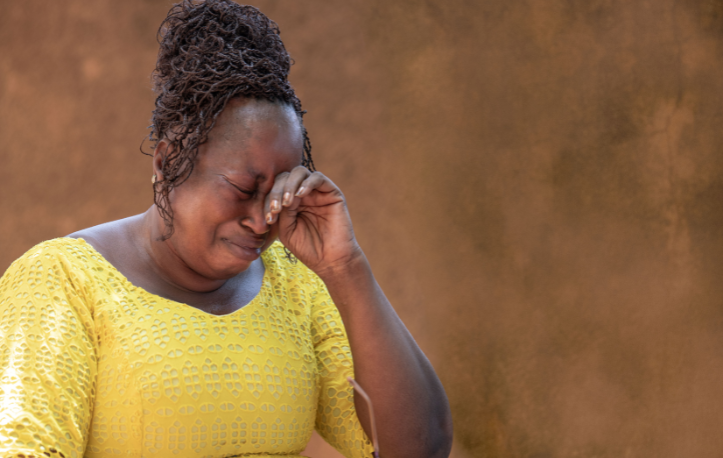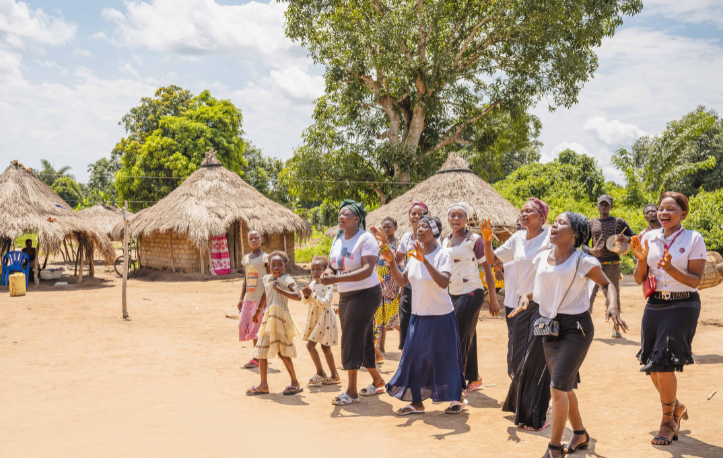As Christian leaders gathered in a quiet mountain town for a meeting about persecution, Manu thought pastors like himself would be discussing their severely curtailed ministry strategies. He recognised he had become increasingly withdrawn from ministry work because of the humiliation and threats he had endured for his Christian witness.
Another pastor, who had suffered pain and depression from years of persecution, expected the meeting to be just like any other pastors’ meeting, more like a seminary class to improve ministry skills. Yet another leader, who had seen fellow pastors arrested and imprisoned under his state’s anti-conversion laws, thought the meeting might be a seminar to help pastors better understand the potential legal implications of their work.
Manu and the other Christian leaders were met with a surprise, however. After their arrival, they were instructed to board an ambulance, which then drove them to a hillside hospital. The hospital staff greeted them warmly as they stepped out of the ambulance and took in the serene mountain views surrounding them.
One of the pastors recalled thinking it might be some kind of trick to get him to relax his guard. Others were also sceptical, wondering if they had been brought to this Christian-run hospital only to pray for patients.
Soon, though, the fear and suspicion yielded to peace. “[The location] reminded me of Psalm 23,” one pastor said. “I was mesmerised by the beauty and serenity of the place.”
This was exactly what the meeting organisers had intended. They had gathered pastors and leaders from “the valley of the shadow of death” so they could rest in the protection and care of their Good Shepherd.
The Fellowship of the Wounded
In the spring of 2024, front-line workers arranged a series of events to serve the spiritual and emotional needs of Christian leaders in India. Many of the country’s states have enacted anti-conversion laws that target Christians. As the Hindu nationalist movement has gained strength and influence across India, the laws have become stricter and have been applied more capriciously.
“These are states where you cannot be found owning a Bible,” a front-line worker said.
Pastors are routinely arrested, bringing shame, isolation and financial insecurity to themselves and their families. Many Christian leaders report being repeatedly evicted from their homes and chased from their communities. They suffer public beatings, vandalism of their churches and homes, and attacks through both social media and traditional media. The relentless persecution has left deep emotional scars.
A ministry leader named Rahul was one of several from his church who were imprisoned for their refusal to deny Christ. “Going to jail was not a good experience for me and my fellow members,” he said. “It only agonised our hearts because … it was such a shameful deed. Our minds then were stuck on one thing, and that was the humiliation and fear that this imprisonment would leave in our minds and hearts.”
Another worship leader, named Gloria, said she no longer felt like the same person she was before she suffered persecution. “I had become a bitter person, an ever-complaining woman to God,” she said. “I was rejected, mocked and challenged, and all these things took my joy from my life. I had lost hope of restoration in my life.”
Manu, who serves as a pastor, explained that Christian leaders often experience twofold suffering. They suffer as primary targets of persecution, and the suffering is then compounded by a lack of support as they strive to help their church members endure persecution. “For a leader who has been traumatised, assaulted and persecuted,” he said, “all these things increase our tension every day.”
The stories of Rahul, Gloria and Manu are not unique, which is one point of these organised events. The meetings include times when persecuted Christians can process their experiences together.
“People humiliated and persecuted me,” Manu shared with his fellow ministry workers, “and it was becoming harder to take on this responsibility of the Great Commission.”
He said that after hearing so many other Christian workers share similar experiences and pain, he felt new hope to carry on. “I realised I had so many brothers running the same race with me,” he said, “and I was not alone in this grieving.”
Healing from the Same Source
Choosing a hospital setting for the meeting of Christian leaders was not an accident or a matter of convenience. Even when persecutors do not inflict visible wounds, fear and stress can have long-term physical effects and cause emotional, spiritual and relational damage. Organisers wanted to address all aspects of suffering as they served those who gathered for the meeting.
“The approach includes addressing shame and vulnerability, and connecting personal stories to God’s story,” one organiser said. He said the invisible nature of mental suffering after an imprisonment or attack can make it hard for the victim to acknowledge and equally hard for others to address.
“It manifests in various symptoms, including reliving painful events, avoidance behaviours, heightened alertness and hopelessness,” the organiser said. “The stigma and misjudgement only intensify the suffering. Healing … requires compassion, gentleness and understanding, following Christ’s example. Small actionable steps paired with reminders of God’s promises help individuals move forward.”
The pastors and other church leaders at the meeting learned about the connections between stress, trauma and physical health, and the hospital staff addressed their specific health concerns between sessions.
“They came up with every solution that they could share with us regarding the illness or tension we had,” said
Vinod, who had suffered from a chronic stomach condition but never had the time and financial means to seek treatment. He said hospital staff listened to him, ran tests and were able to provide an inexpensive treatment that brought rapid relief. Other participants received treatment for high blood pressure, diabetes and other conditions that had developed as they were suffering persecution.
In addition, the organisers applied God’s Word to the spiritual and emotional wounds that many participants carried in their hearts. “The mentors who were leading our training and sharing through Scripture were so accurate and relatable to our lives,” Manu said.
Cornelius, who has had to move his family 17 times in 12 years as a result of threats and attacks, said he felt broken when he arrived. As he listened to the speakers and joined in the discussions, though, he felt as if he were being put back together.
“I was struggling in all realms — spiritually, mentally and physically,” he said. “The teachings were wonderful. I could feel the roughness in my life, the unevenness in my life, getting smoothed with new strategies for coping. Many of my questions were answered.”
Teachings from the Psalms were especially meaningful for some participants. “King David has written so many hymns to the Lord where he shares every note of his life,” a pastor said. During one session, a leader jokingly encouraged the group to study ‘Psalm 151’, a new psalm they could write to the Lord, sharing their deepest desires and griefs. Some participants, inspired by the speaker, took the time to write out their prayer to God.
Gloria, who had been abused as a teenager before suffering persecution as a Christian leader, saw a close connection between emotional wounds and physical wounds. She concluded that healing for each comes from the same source.
“In this meeting, I learned how to give away all the pains, all the griefs, and all the sorrows to the Lord,” she said. “[If you] hold back by applying temporary ointment on the surface and binding the wound, it would only make the injury worse, and that would become fatal in our lives. We need to help the wound be healed from within. If the wound needs surgery, so be it, so that the wound is healed and we can live a normal life again and become healers for others’ wounds.”
Manoj, another Christian leader in attendance, described living in terror after anti-conversion laws were used to persecute members of his church. But he found that the most lasting damage involved his struggle to forgive the persecutors.
“The most prominent lesson for me personally was that we need to forgive people and let the past go so we can live a life full of freedom,” he said. “This had hampered me for a long time, since I had kept unforgiveness in my heart.”
The speakers likened unforgiveness to a slow poison that could only harm the person holding onto it, leading to both physical illness and distance from God.
“The knot of hatred must be loosened,” Manoj said, “and for this you must forgive.” After putting that principle into practice when he returned home, Manoj said his love for and fear of the Lord led to a renewed passion for ministry.
The holistic approach used by the teachers and organisers of the meeting, Manoj added, is what enabled him to return to ministry work with renewed energy. “They were with us in every possible way,” he recalled, “focusing on the practicality of Christian life and helping us learn to recover from the past.”
He said the combination of spiritual encouragement, health advice and interaction with others who had suffered persecution and stress was especially helpful. “We had been living a life of isolation and loneliness with no one to think about us and ask us how we are surviving,” Manoj said, “and their encouragement to resume our ministerial work is truly appreciated.”
Beyond Fear
While each participant at the meeting brought unique burdens and received help in different ways, two common themes emerged as they shared their experiences: the meetings changed their thinking about persecution and inspired them to share the powerful lessons they had learned.
Having overcome her long-standing bitterness, Gloria now seeks to tell others about the freedom found in Christ. “There are many women like me in the church who have been living … in bondage to persecution and trauma,” she said. “They need to be freed just as I was freed after I came here. I can now understand the pain of other women and help them to heal.”
Like Gloria, Cornelius found that he too, could serve other believers better after finding renewed peace and joy himself.
“I went [to the meeting] with a burden and came back with hope and light in my life,” he said. “I have found a treasure, and I have recently had the chance to share with my people, teaching them what I have learned. I am helping them grow spiritually.”
Manu was also enthusiastic about returning to ministry work that had languished while he suffered alone. His focus now is on resilience. “After we are faced with a great storm of adversity and troubles, when it seems like we can break at any moment, we need to stand against this opposition and prove our resilience by clinging to the Word of God,” he said. “When the power of the Lord comes on us, we the weak, become strong enough to silence the storm outside. That’s the glory of the Lord. I am now living life beyond fear and have resumed my ministry in those places where I had thought of not going again.”



Submit a Prayer